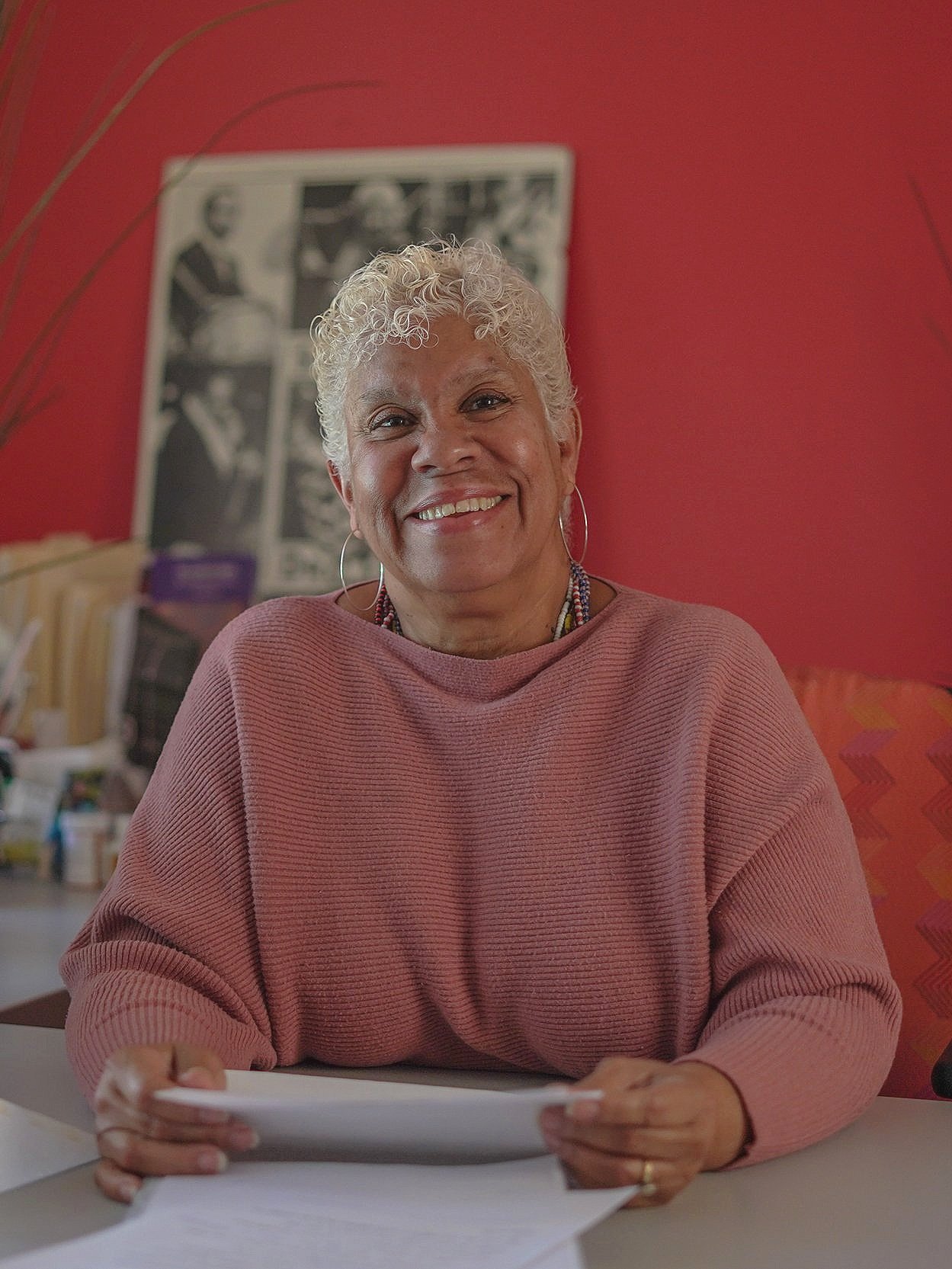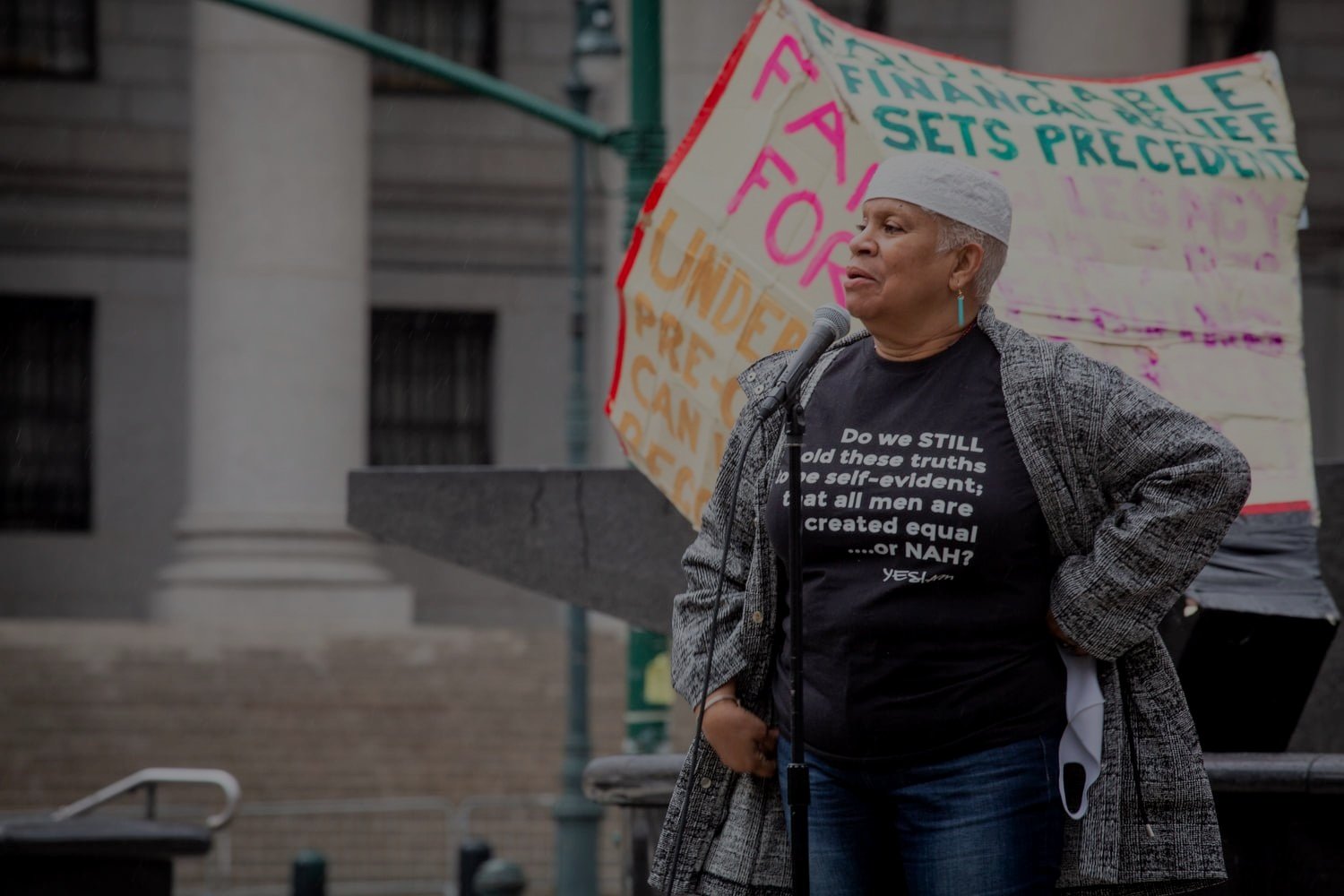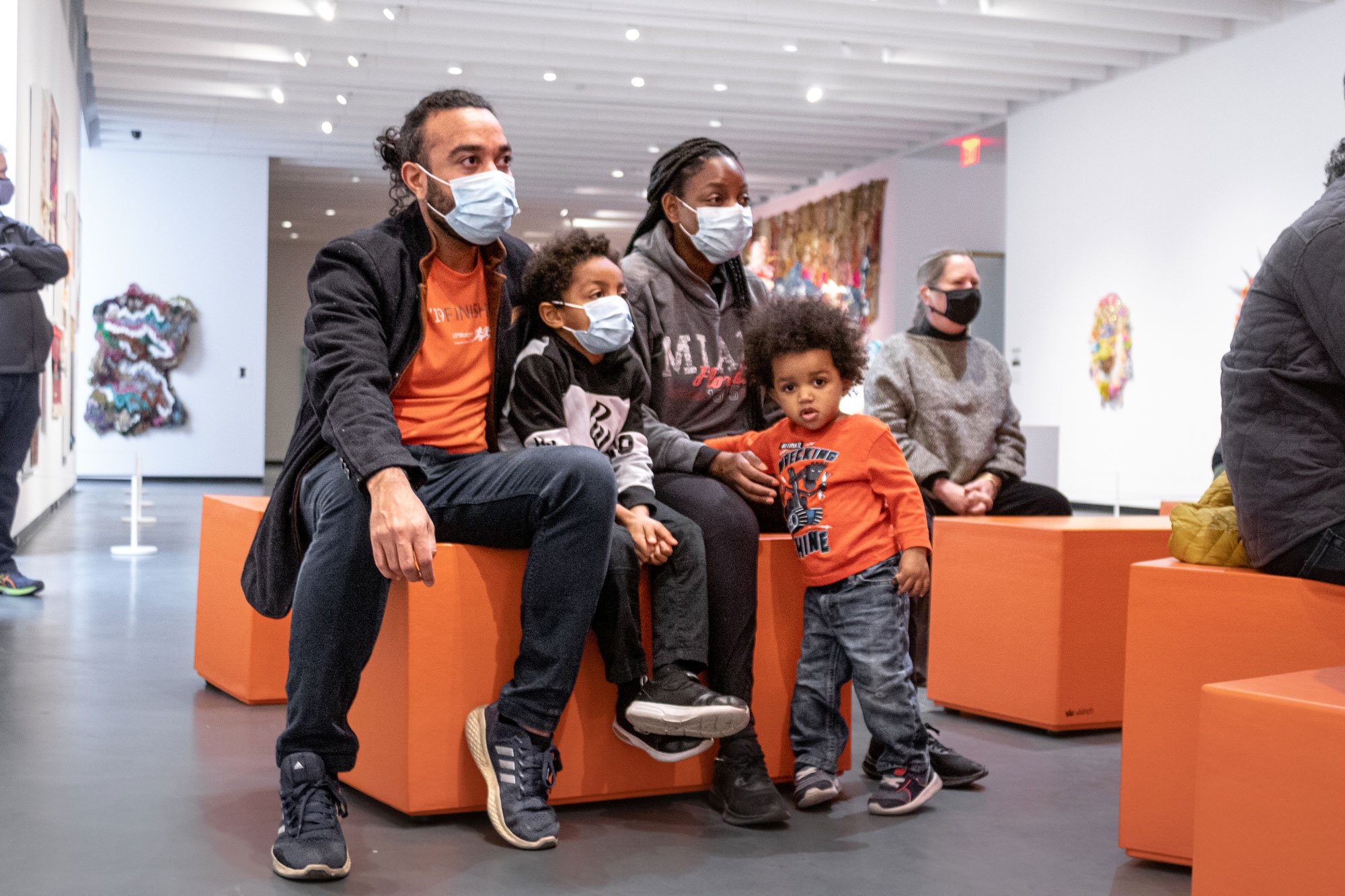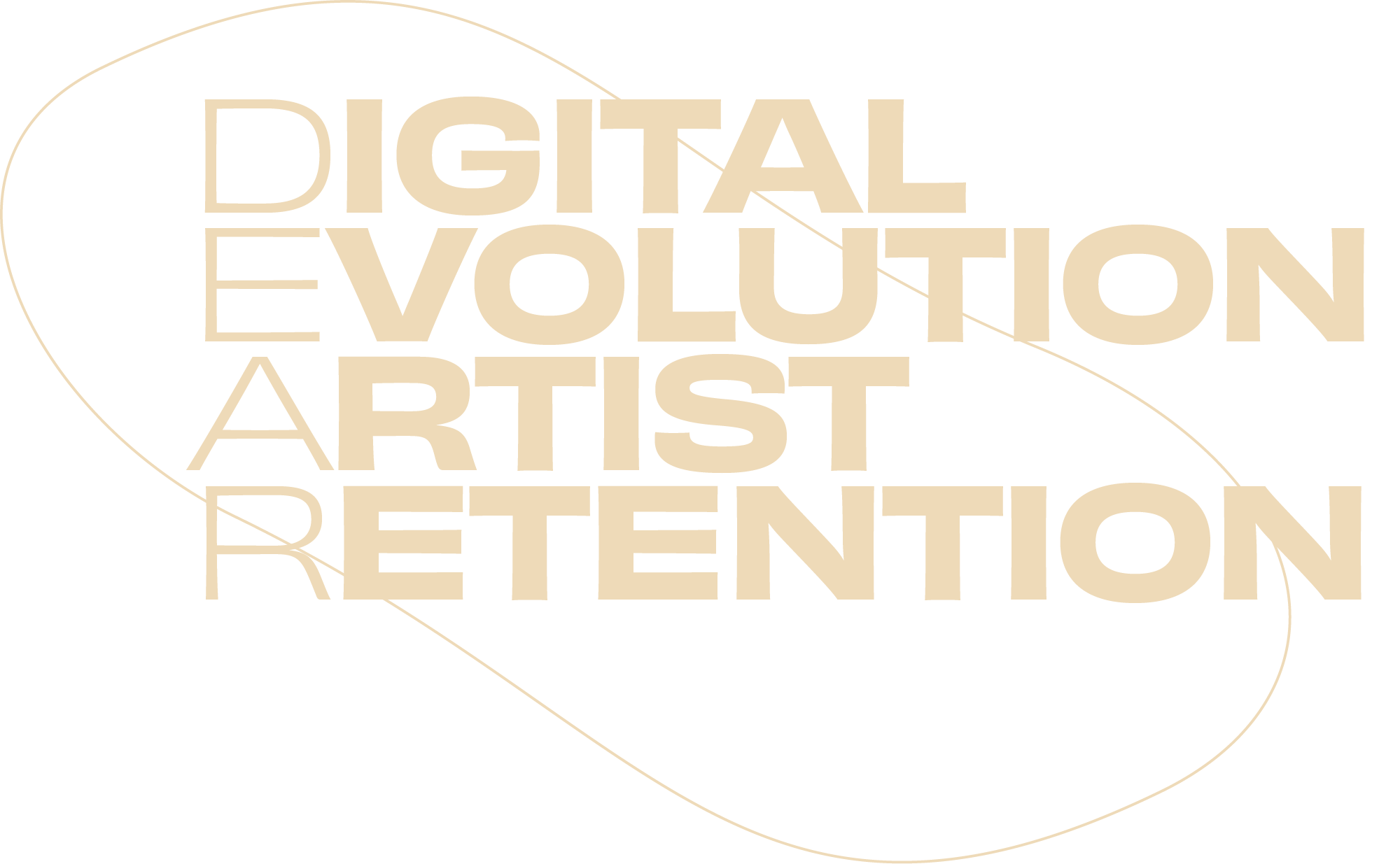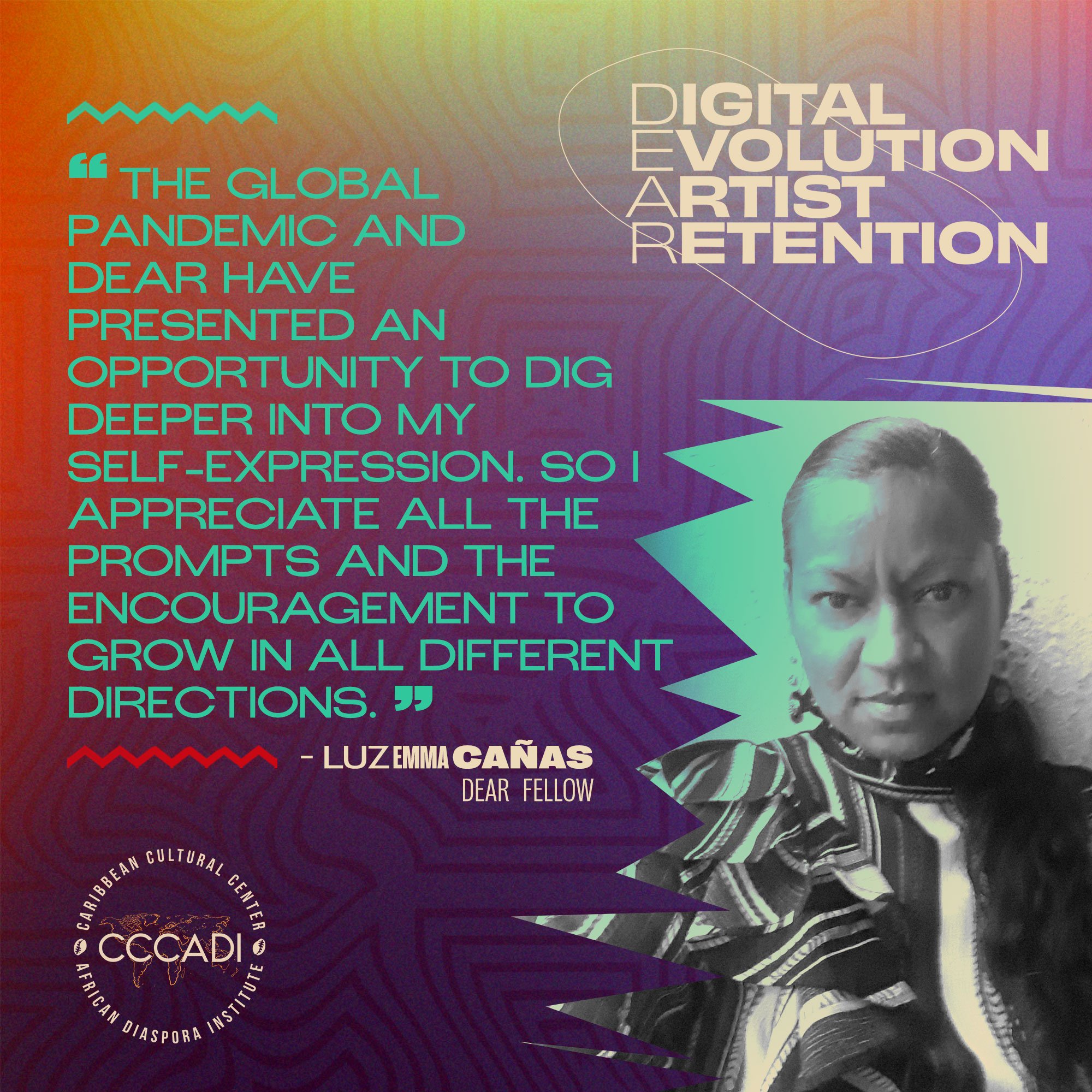Caribbean Cultural Center African Diaspora Institute
Annual Report
Honoring our 45-year-old legacy. Building our future.
Mission:
The Caribbean Cultural Center African Diaspora Institute is an arts, culture, education and media organization that advances cultural equity, racial, and social justice for African descendant communities.
Founded by Dr. Marta Moreno Vega in 1976, CCCADI's programs serve children/youth, families, young professionals, elders, local and international artists, and practitioners of African-based spiritual traditions. CCCADI offers a collective space where African descendants honor the contributions of the global African Diaspora through exhibitions, performances, conferences, educational programs, and international exchanges.
The following report highlights CCCADI’s recent accomplishments throughout the pandemic and the Most recent fiscal year (july 1, 2021 - June 30, 2022). This report honors CCCADI’s historic legacy and offers a glance into The Organization’s leadership and vision. Illustrated below are examples of CCCADI’s programming, which collectively reached 80,000+ views internationally, testimonials from some of the 100+ artists served through CCCADI fellowships, and the organization’s Financial strength in the last two fiscal years.
We invite you to experience all that this review has to offer.
Letter from Executive Director Melody Capote
Dear CCCADI Community,
As this is the first published annual report during my tenure as executive director, I want to formally acknowledge our founder Dr. Marta Moreno Vega and our extraordinary forty-five-year history of using arts and culture as a vehicle for addressing racial and social justice issues and the contributions of the African Diaspora to civilizations everywhere. I am honored to build upon such an exceptional legacy that, in addition to our recent accomplishments, you will also see highlighted in this report.
Community, I also want you to know this: I am dedicated to repatriating and bringing back home the culture that, through slavery, colonialism and oppression, was stolen from us. So, as the leader of this remarkable organization, I’ve set out to guide the CCCADI community on a journey. We begin in Harlem, travel throughout New York City, venture down South, cross waters to include the Caribbean, and finally, find a home in Africa itself as we address racial and social justice through arts and culture and reclaim what is ours.
“Our reaction was to create something that would be both a project and a fundamental restatement of our mission. ”
Through my thirty-eight-year tenure at this organization, I have seen how CCCADI has been one of the “go-to” institutions for knowledge and insight regarding the role that race and racism play inside our arts and culture ecosystem for decades. So, as the global cry to end state-sanctioned violence against Black lives strengthened, we faced a critical juncture that catalyzed an elevated level of commitment to the work. Our reaction was to create something that would be both a project and a fundamental restatement of our mission.
In 2020, the CCCADI Institute for Racial and Social Justice in Arts & Culture was born. Under this umbrella, we immediately launched webinar-based trainings to arts and culture organizations interested in dismantling systemically racist processes, cultures and behaviors within their organizations. Simultaneously, we launched the Digital Evolution Artist Retention project, known as DEAR, to provide training, technical support, and funding to artists of color suffering from the economic impact of the pandemic. It is now the model for how CCCADI will continue to expand its work for artists and cultural workers throughout the African Diaspora.
As we close this fiscal year, I am pleased to share that our Institute for Racial and Social Justice in Arts and Culture continues to grow and our journey has indeed begun. This last year, CCCADI expanded its East Harlem footprint by acquiring a 5,000-square-foot space that will serve as a home for the organization’s network of artists, cultural workers, and alumni of this Institute.
In this past year, CCCADI has built relationships and partnerships with organizations across the Diaspora, such as New Orleans, South Carolina, Puerto Rico, Jamaica, and Ghana, whose work and mission align with ours.
As we enter a new year, we embark on an exploration of new heights for CCCADI and for the progress of cultural equity, racial and social justice for African descendant communities.
I would be honored if you would join me on this journey.
Reclaiming and building together, I am,
Melody Capote
Executive Director
Caribbean Cultural Center African Diaspora Institute
Letter From the CCCADI Board Chair Luther Smith
Dear Members of the CCCADI Family,
It has been my privilege to serve as chair of the Caribbean Cultural Center African Diaspora Institute’s Board of Directors for these past two years. This term has seen turbulent times including the COVID pandemic and the long-overdue racial reckoning symbolized by the significant and global increase in support for the Black Lives Matter movement. Through it all, CCCADI has been able to remain open as a cultural marketplace of ideas and even expand its operations as well as its physical and cultural footprint in the community.
I am particularly proud of my Board members who have safeguarded the well-being of CCCADI and its community by providing valuable oversight and high-level strategy. The proof of that is simple. In the last two years, we have doubled our annual revenue, expanded our global reach, and increased our artist and cultural worker network all while resolutely upholding our mission.
We look forward to doing the same in this coming year.
On behalf of the Board of Directors, I wish to congratulate Melody and her marvelous staff on their recent successes.
However, none of this could have been achieved without the efforts of all of you, our countless community members who supported us with your donations, engagement, advocacy, artistry, and so much more. I want to thank all of you for your commitment to empowering artists of the Diaspora, elevating cultural and spiritual programming, and helping us lead the intergenerational reclamation of the power of our identity as African descendants.
Thank you to our many funders and supporters for championing us during this rough, economic downturn and we look forward to continuing these invaluable partnerships.
Our strength and fortitude through these turbulent years would also not be possible if not for those who came before us, our ancestors, our founder, past leaders, Board members, and all those who laid the groundwork for us to move forward.
Currently, we are experiencing a critical juncture in which we have the tools, leadership and legacy to do more than survive. In fact, we are and will continue to flourish, prosper, and thrive!
In Power,
Luther Smith
Board of Directors, Chair
Thank you to entire CCCADI Board of Directors for their dedication to the organization and its community:
Luther Smith
Lumumba Bandele
Manuela Arciniegas
Marie Brown
Sapna Lal
PAST & PRESENT: 45+ YEARS OF CCCADI
THE TIMELINE SERVES TO HIGHLIGHT SOME OF CCCADI’S INCREDIBLE MILESTONES THROUGHOUT THE YEARS. IT IS A WINDOW INTO OUR RICH HISTORY. WE ACKNOWLEDGE THAT THIS TIMELINE ONLY CAPTURES A GLIMPSE INTO ALL OF THIS ORGANIZATION’S CONTRIBUTIONS, ACCOMPLISHMENTS, AND GROWTH OVER THE LAST FOUR DECADES. NEVERTHELESS, THIS IS A MINUTE YET ILLUSTRIOUS TOKEN OF OUR GRATITUDE TO PAY TRIBUTE TO CCCADI’S LEGACY OF LIFELONG CULTURAL WORKERS AND CONTRIBUTORS. WE GIVE THANKS TO EVERYONE WHO HAS GIVEN SO MUCH OF THEIR TIME, TALENT, EXPERTISE, AND LOVE TO ESTABLISH CCCADI AS THE INSTITUTION IT IS TODAY. SOME OF THESE SPECIAL INDIVIDUALS INCLUDE AMBASSADOR FRANKLIN H. WILLIAMS, LAURA MORENO, C. DANIEL DAWSON, KATHERINE DUNHAM, HENRY FRANK, MOLLY AHYE, ROBERT FARRIS THOMPSON, DOWOTI DESIR, LOREMIL MACHADO, ANGELA FONTANEZ, JOHN MASON, LOWERY SIMS, FELIPE LUCIANO, VICENTE "CHENTE" MORALES, LIGIA BARETTO AND J. MICHAEL TURNER AND YVES SAVAIN, AMONG COUNTLESS OTHERS.
2021 - AFRIBEMBÉ: Black Solidarity = Black Freedom
After eighteen months of virtual programming, CCCADI offered its third annual AFRIBEMBÉ FESTIVAL as a hybrid event commemorating Black August. More than 250 in-person attendees filled East 120th Street to enjoy musical performances by various African Diasporic artists, an arts and artisan marketplace, an immersive social justice experience and art education workshops for children of all ages. Thousands of others viewed the event’s live stream online.
Leading Through Pandemics
Recognizing the significant hardships that the dual pandemics of COVID-19 and chronic systemic racism created for African Diasporic artists, as well as arts and culture organizations, CCCADI Executive Director Melody Capote led with action and advocacy.
Impacting Our Global African Diaspora
How does CCCADI uphold its legacy, promptly address the needs of the community, and chart a course for future generations during a time of limited interaction in a competitive digital world? CCCADI was able to do all of that and more through engaging, multifaceted and intergenerational virtual programming, digital exhibitions, artist and cultural worker fellowships, and arts education programs for school-aged children and their families.
From its Sankofa Talks program that uses intergenerational dialogue to look to the past in an effort to inform the future, to its AFRO WAVES and Afro-Picks programs that uplift emerging artists, from honoring African-based spirituality through the Sacred Traditions series, to observing the public mourning of lives taken prematurely by state violence through the On Protest and Mourning exhibition, CCCADI utilized its programming to impact the African Diaspora locally and globally.
80,000+ Global Views
of CCCADI’s digital programs across all platforms
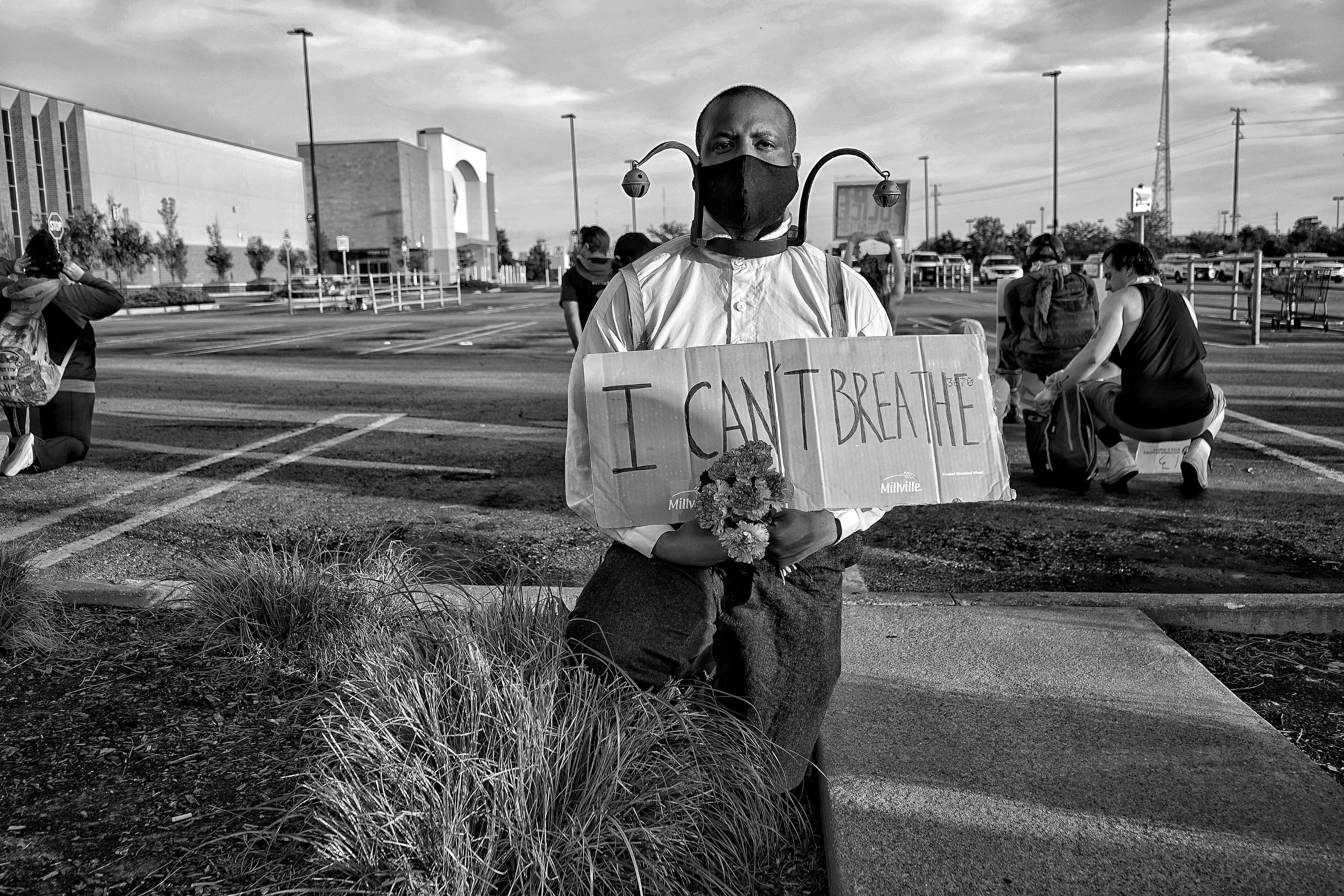
5.4K+ Unique VISITORS
to CCCADI’s first-ever digital exhibition
Curated by Grace Aneiza Ali, CCCADI Curator-at-Large
300+ children
engaged in African Diaspora based arts education through a summer program with East Harlem’s Urban Assembly School for Global Commerce, the Cultural After-School Adventures Program (CASA) with local public schools, and in-person Sou Sou! Saturdays events.
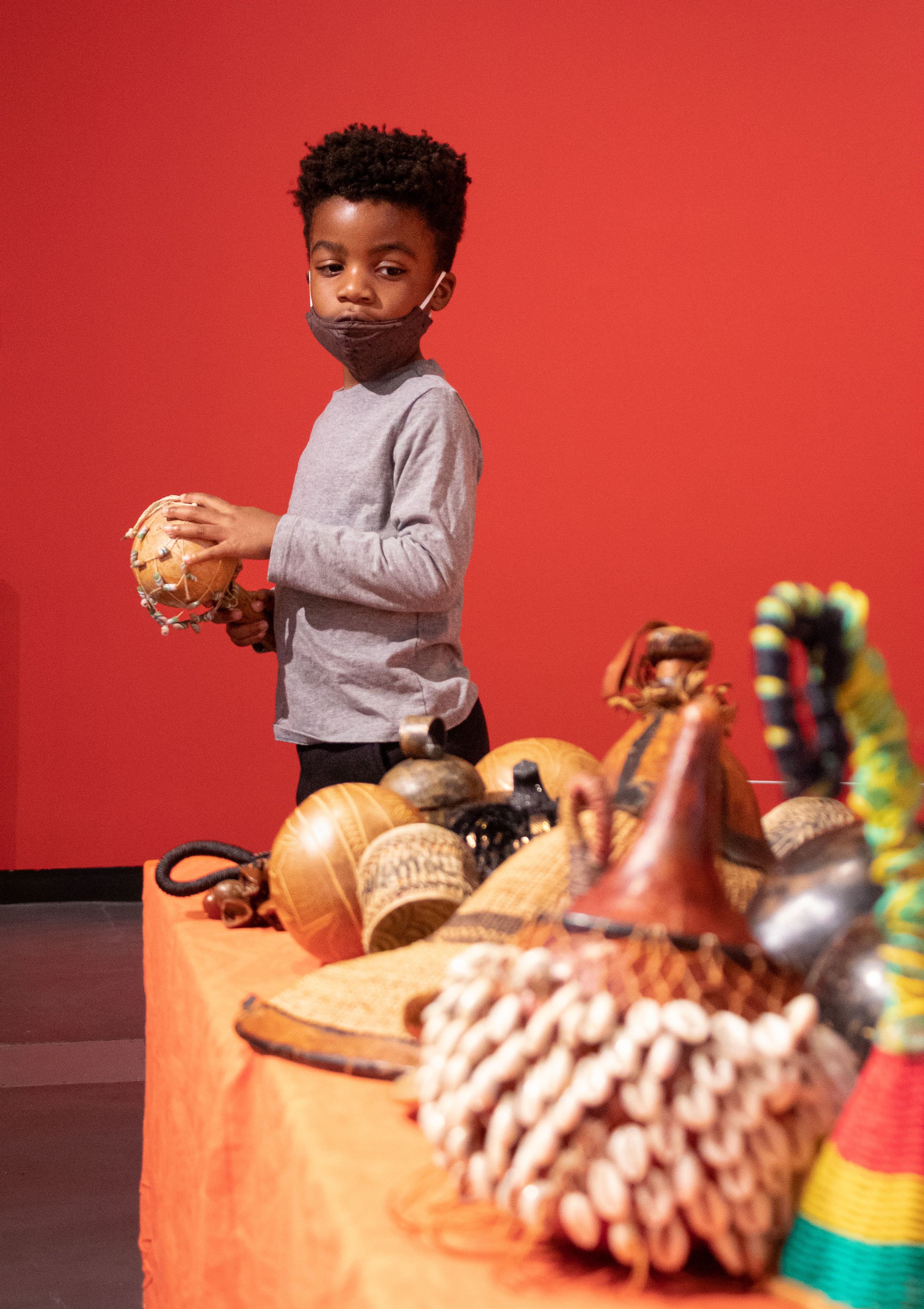
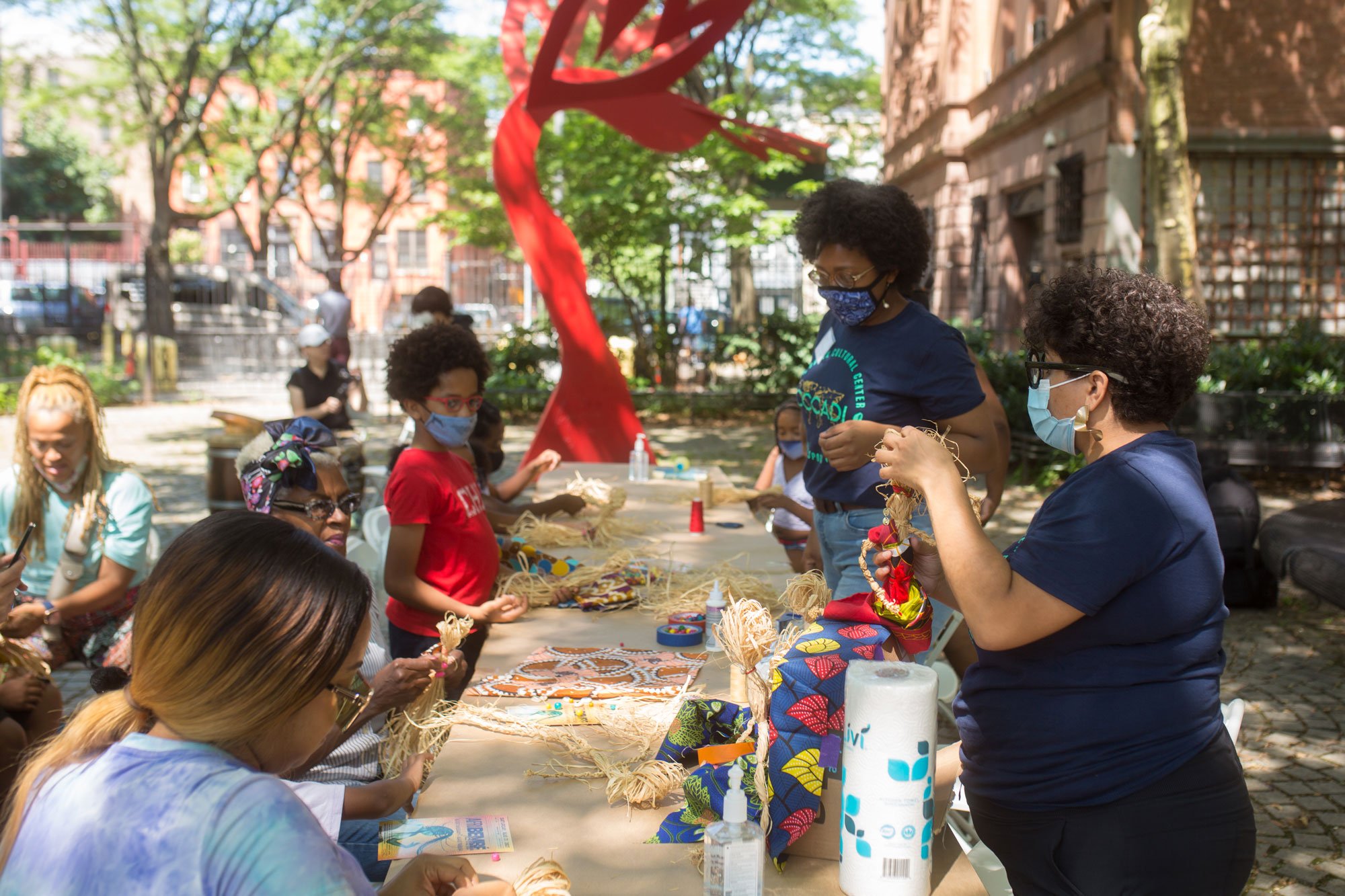
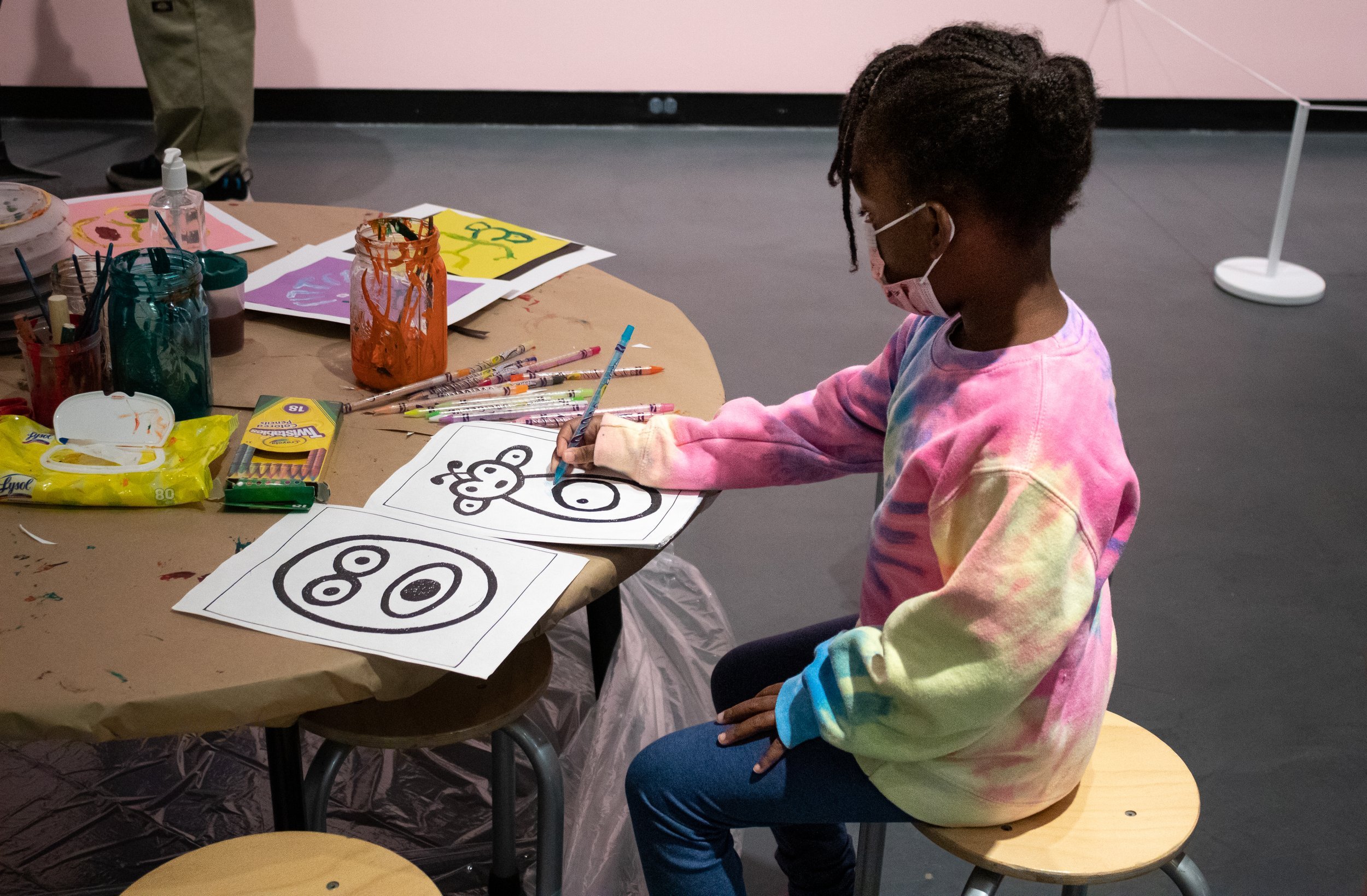
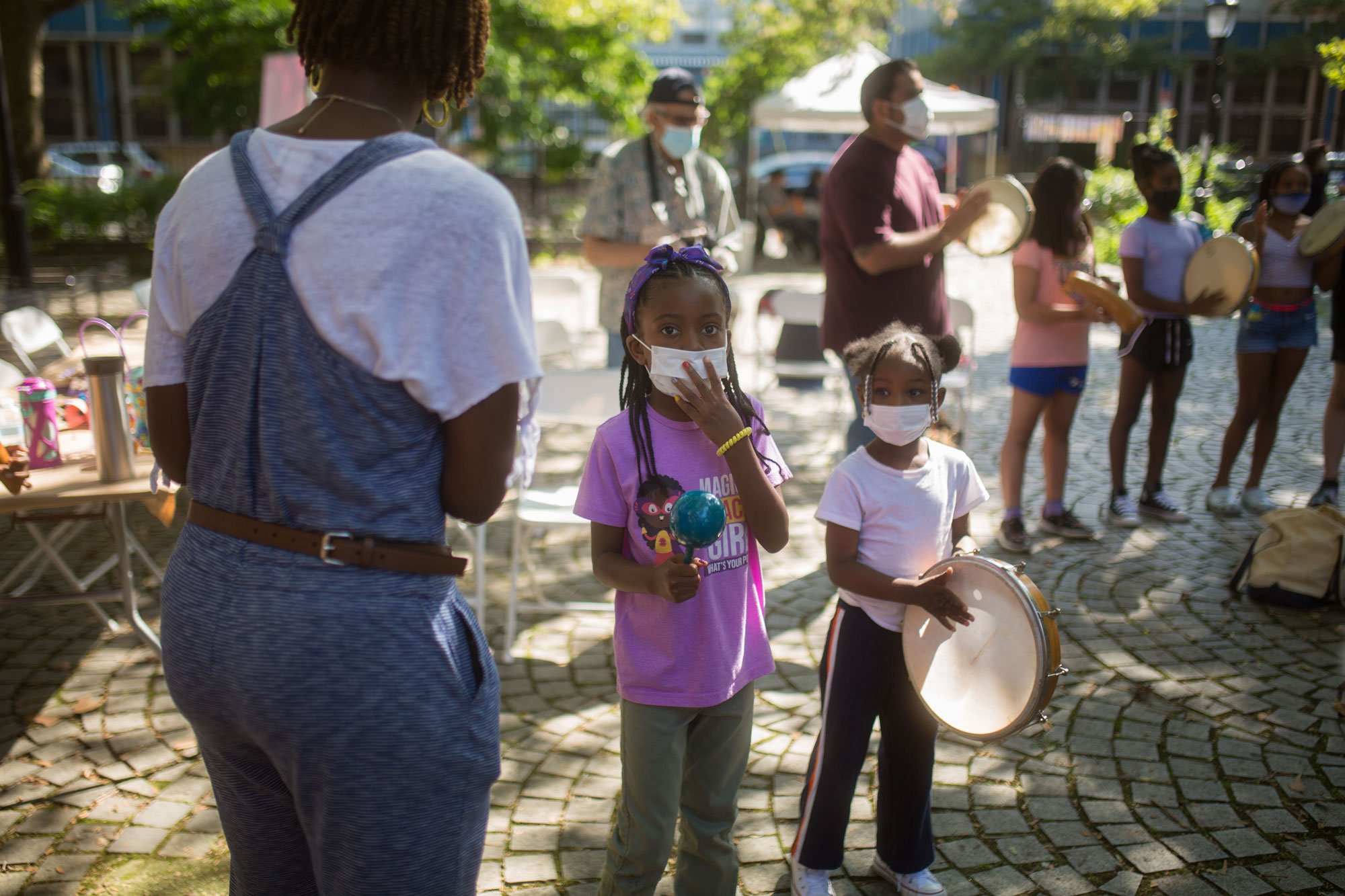
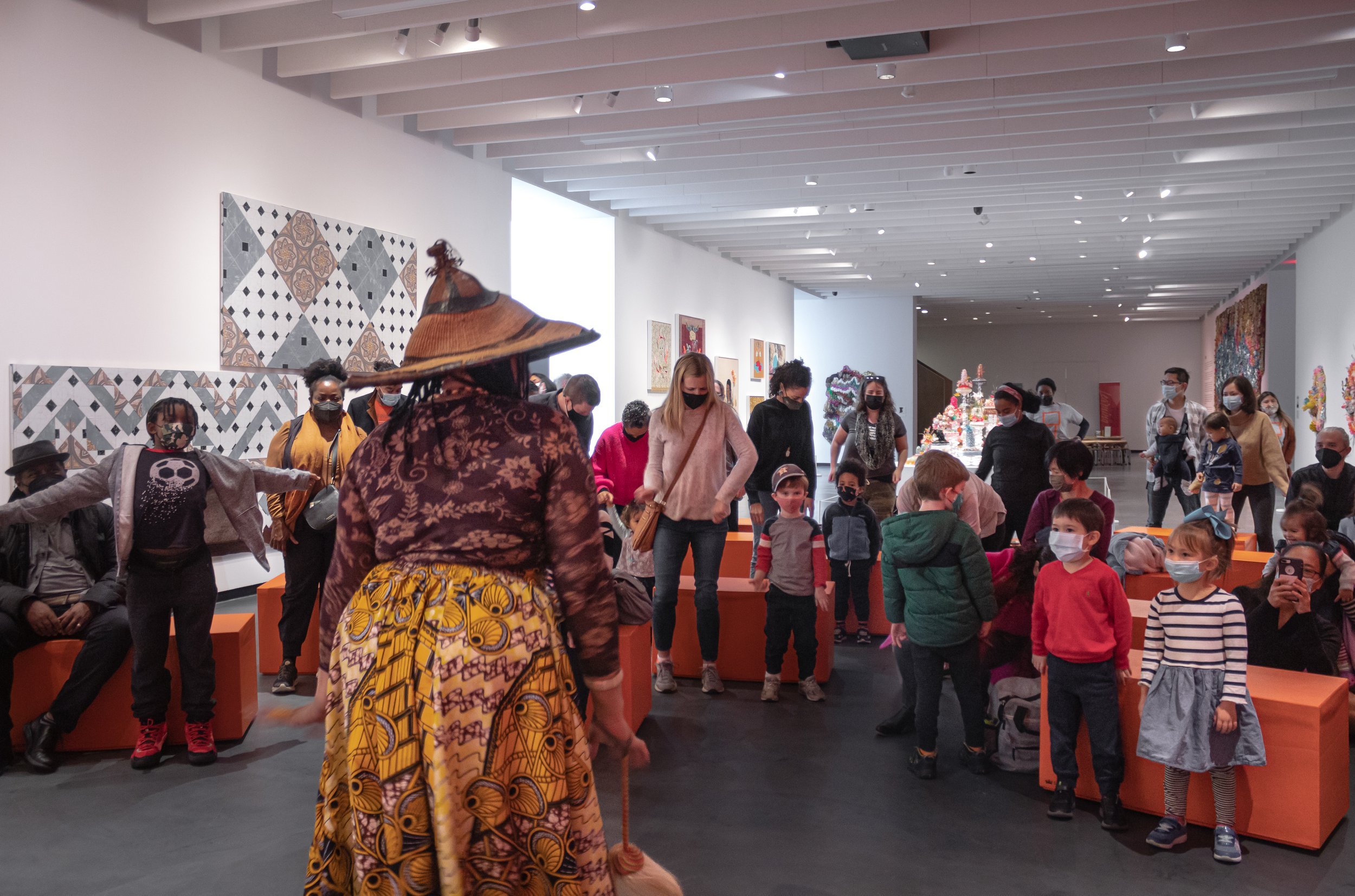
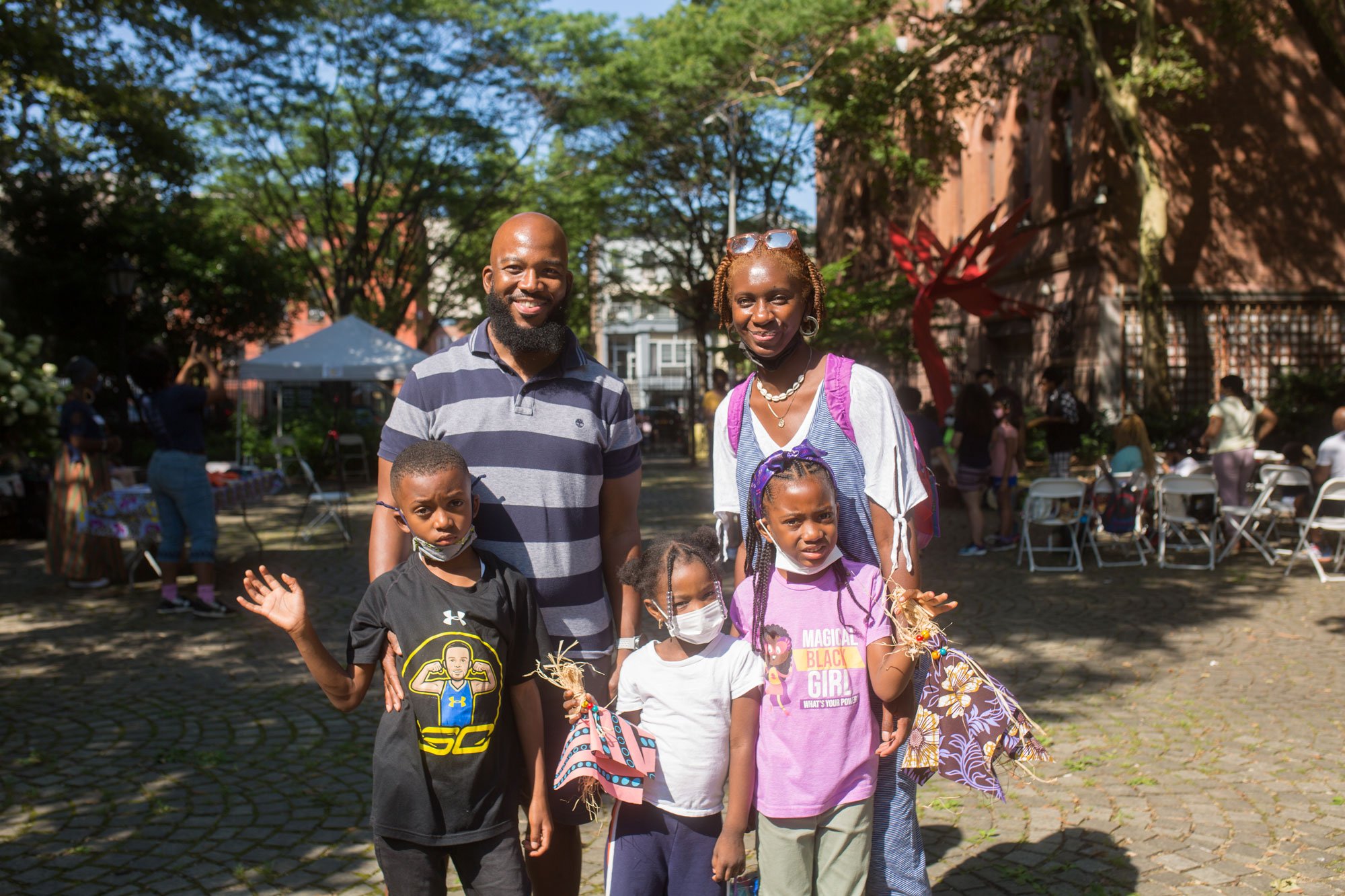
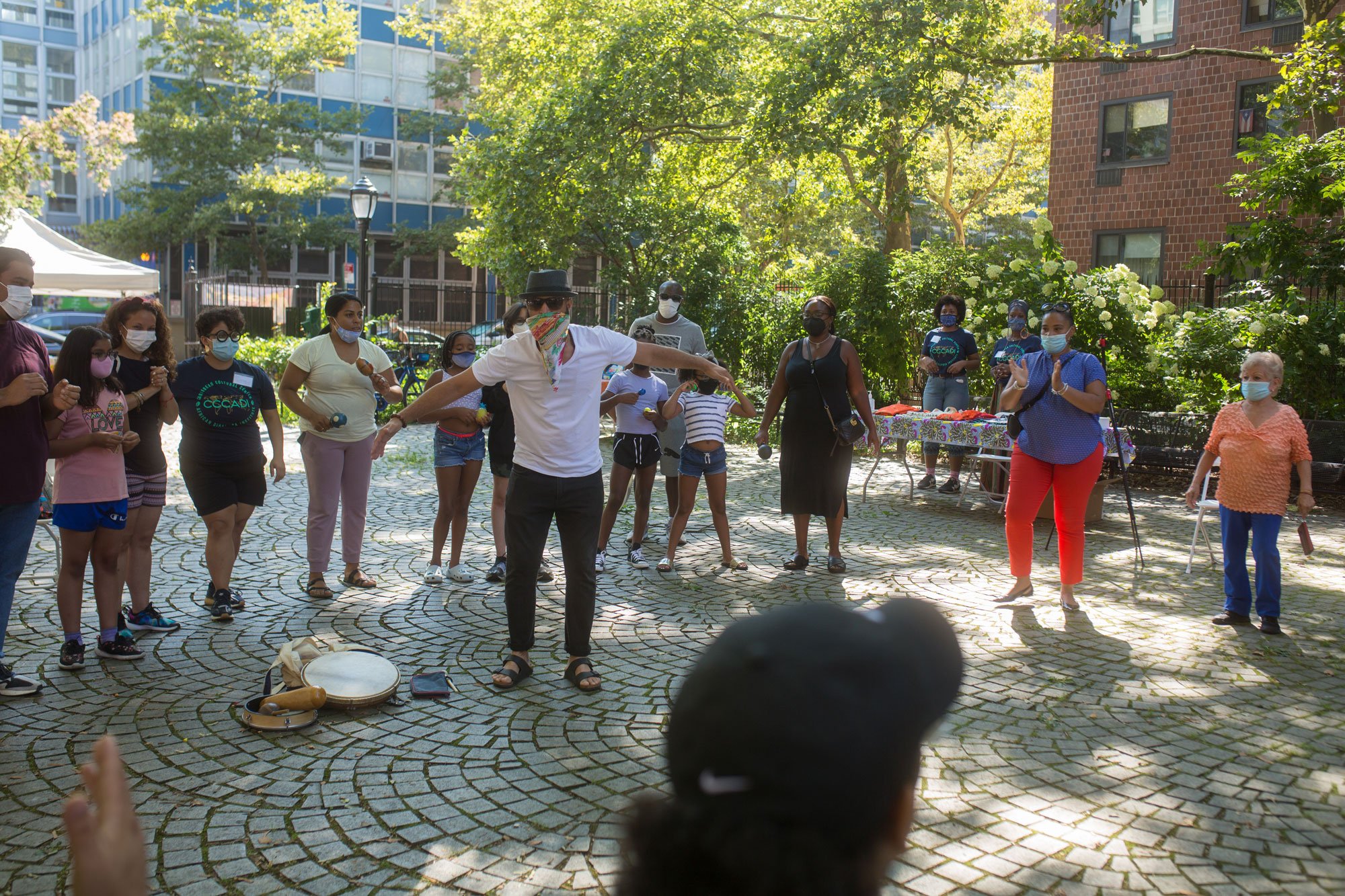
4 musical artists
presented through AFRO WAVES. AFRO WAVES is a concert series that showcases the Black cultural evolution with vanguard artists of the African Diaspora.
6 filmmakers
presented through Afro-Picks. Afro-Picks is a virtual talk series that highlights emerging filmmakers and films set in the communities of the African Diaspora.
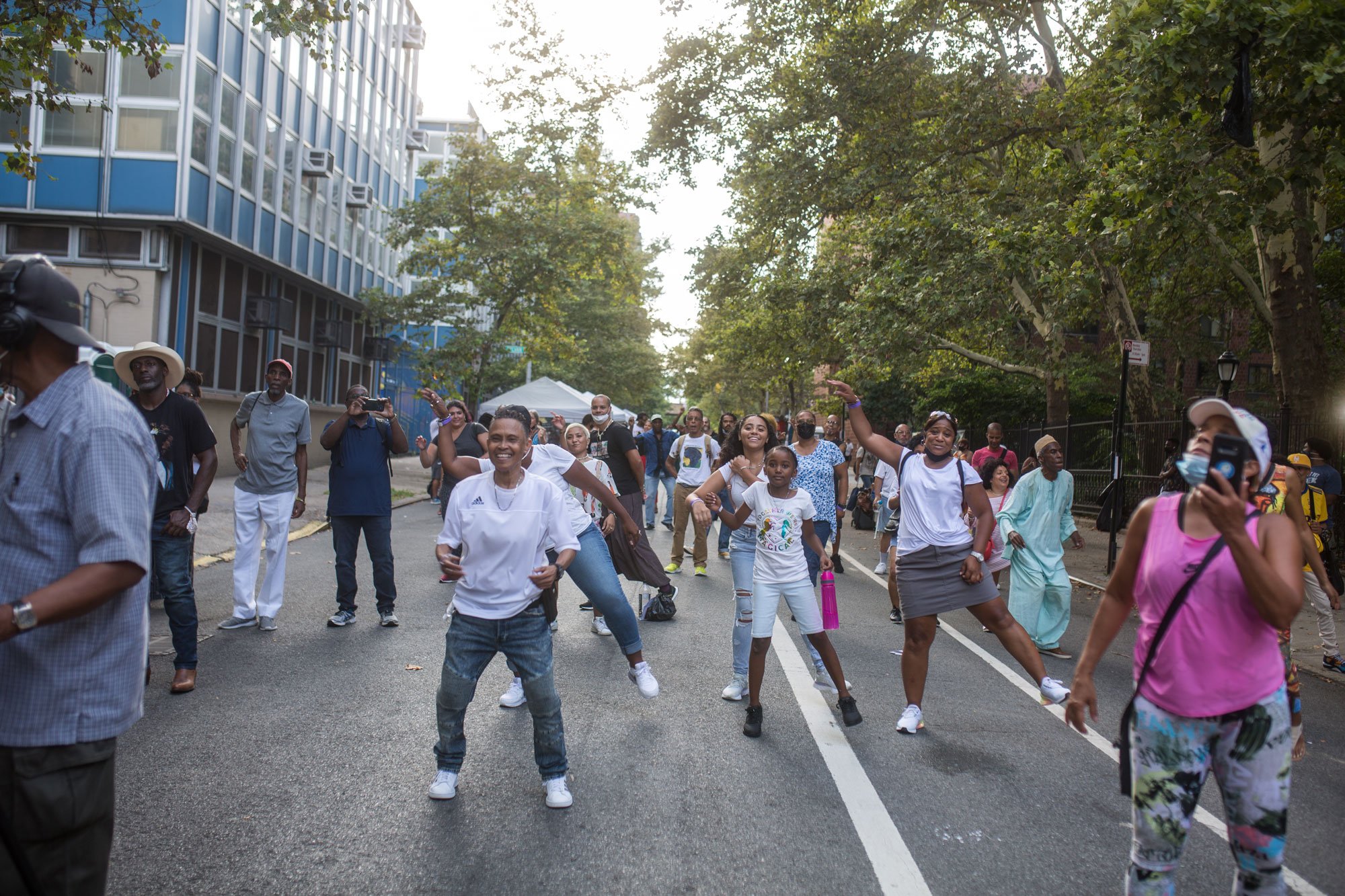
The CCCADI Institute for Racial and Social Justice in Arts and Culture
established in 2020 as a response to the legitimate demands of the Black Lives Matter movement and a significant investment of $500,000 by the Ford Foundation, CCCADI’s Institute for Racial and Social Justice in Arts and Culture houses three fellowship programs for African Diasporic artists and cultural workers who are committed to this work.
100+ artists
And Cultural Workers of the diaspora served through the Digital Evolution Artist Retention Fellowship, Innovative Cultural Advocacy Fellowship, and Afro Caribbean Art Curatorial Fellowship.
Digital Evolution Artist Retention (DEAR) Fellowship
designed to give participating artists and arts practitioners of African descent the opportunity to connect, reflect, and strategize in a community of peers committed to growth and adaptation.
Innovative Cultural Advocacy (ICA) Fellowship
trains mid-career professionals of historically marginalized communities of color for public leadership and management of cultural institutions and nonprofit arts organizations in New York City and across the nation.
“The ICA fellowship was one of the most impactful, eye-opening, and encouraging experiences I have had in a long time. I am so grateful to have been selected for this program.”
— Kearah-Armonie Jeudy, ICA Fellow Cycle IX
“The ICA Fellowship was a generative space for me at a time when I was looking for inspiration in my work. It helped me realign my work and my values and introduced me to practitioners in the field with similar viewpoints. I came in thinking I would invest more fully in the institutional work I have been doing but left with something even more valuable: an awareness of how I want to do this work beyond my 9 to 5.”
— Rachell Morillo, ICA Fellow Cycle IX
“This fellowship was incredibly insightful and connected me to so many amazing people. CCCADI is truly dedicated to its community. It was both inspiring and affirming to participate in such a remarkable fellowship.
— Anthony Martinez, ICA Fellow Cycle IX
Afro-Caribbean Art Curatorial Fellowship
dedicated to curators of color who are committed to the artistic and cultural production of the Caribbean and its Diaspora. Fellows of this program explore challenging curatorial questions aimed at diversifying arts and culture institutions.
In 2021, CCCADI expanded its support for the alumni of the Institute for Racial and Social Justice in Arts and Culture by providing technical assistance and guidance for funding opportunities within the arts and culture sector. As a result, three DEAR alumni, Juan Usera, Fatima Logan and H. "Herukhuti" Sharif Williams each received $10,000 from NYSCA in support of projects grounded Diasporic arts.
“When CCCADI embraced me through its DEAR program, I knew, as an artist committed to Black liberation, decolonization, and indigenous cultural and artistic sovereignty for African people worldwide, I had found community. But I had no idea that CCCADI would immediately start to demonstrate that its support wasn't mere armchair revolutionary talk. Only a couple of months after becoming an alum, CCCADI offered to support me in pursuing, and now successfully obtaining, a NYSCA grant. The grant comes at a critical moment for me as an artist.”
- H. "Herukhuti" Sharif Williams
$30,000 Awarded
to CCCADI Fellows by the New York State Council on The Arts (NYSCA)
Securing the Future
Presently, systemic oppression and racism have left African descendant communities with stripped identities, having taken from our culture, belief systems, languages, art and more, like sunflowers with just one petal. That is not the future CCCADI envisions. Instead, CCCADI envisions a world of cultural equity, a world where children of the Diaspora are sunflowers fully bloomed, with all their petals in place. CCCADI sees a future of reclaimed culture and a strengthened sense of collective identity.
To secure such a future, ensuring CCCADI is a fiscally responsible organization is a top priority.
Money Raised (By Million)
% of REVENUE AND OTHER SUPPORT
% of EXPENSES
Copies of CCCADI's audited financial statements are available upon request by emailing executivedirector@cccadi.org
Thank you to our Funders:
The Mosaic Network & Fund in the New York Community Trust
New York State Council on the Arts
New York City Department of Cultural Affairs
CCCADI acknowledges the generous support of the New York City Council, New York State Assembly, New York State Senate and the Executive Office of the Governor.
We also want to thank all of our individual donors for their support of CCCADI’s mission.
Thank you current and past members of the CCCADI team who contributed to all that this report reflects:
Melody Capote, Sabine Blaizin, Michael Cordero, Viannca Vélez, Haidar Alrubaiee, Aaleah Oliver, Patricia Nefertiti Arthur, Elisa Galindez, Lorenia Henriquez, Tramaine Chelan’gat, Julio Roldan, José Rivera, Regina Bultrón Bengoa, Marinieves Alba, Mario Carrión, Grace Aneiza Ali, Dantaé Elliot, Kimiyo Bremer, Antoinette Gardner, Kat Lazo, Nina Olson, Marlena Fitzpatrick, Benjamin Knight, Dan’etta Adewole Jimenez, Kadrena Cunningham.


